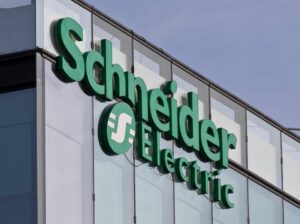Schneider Electric emphasizes the imperative role of electrification and digitalization in expediting decarbonization efforts, asserting the critical need for widespread deployment of existing technologies to curb the escalating threat of climate change. The company, a frontrunner in digital energy management and automation transformation, urges a focus on leveraging renewable energy generation and advanced digital and electrification tools to enhance energy efficiency and combat corporate and supply chain emissions.
Against the backdrop of accelerating climate change, geopolitical tensions, fluctuating energy prices, and growing stakeholder pressure, environmental sustainability and energy resilience have ascended to prominence on both corporate and policy agendas. This landscape sets the stage for discussions at the World Economic Forum’s annual meeting in Davos, Switzerland, where senior executives from Schneider Electric are actively participating. Peter Herweck, CEO of Schneider Electric, underscores the centrality of the energy transition in the decarbonization journey, highlighting the immediate impact achievable through existing technologies. While acknowledging the burgeoning interest in artificial intelligence, Herweck emphasizes the significance of available tools, emphasizing that waiting for future solutions may delay essential emissions reduction actions. Crucially, private sector engagement emerges as a key driver in emission reduction efforts globally. Many companies worldwide, numbering over 4,200 as of January 2024, have committed to emissions reduction targets validated by the Science Based Targets initiative (SBTi), signaling a collective commitment to sustainability and decarbonization.The report emphasizes the growing recognition of the power of energy efficiency, citing Schneider Electric’s collaboration with the International Energy Agency for a major conference on the topic. Notably, a recent report from the World Economic Forum reveals that strategic actions focusing on energy consumption, energy savings, and value cooperation partnerships could unlock up to $2 trillion in wider economic savings, preventing the construction of 3,000 additional power stations if implemented before 2030.
Addressing “Scope 3” emissions, which constitute over 70% of a company’s carbon emissions according to the UN Global Compact, becomes a pivotal focus. Schneider Electric’s research underscores the potential for substantial emissions reduction by implementing digital building and power management solutions in existing structures, with a remarkably short payback period of less than three years. Olivier Blum, Executive Vice President of Energy Management at Schneider Electric, stresses the importance of businesses extending their focus beyond internal operations. He emphasizes the necessity for companies to foster energy efficiency and cleaner energy procurement throughout their entire value chain, supporting suppliers, customers, and business partners in embracing electrification and digital technologies as integral components of decarbonization strategies.






